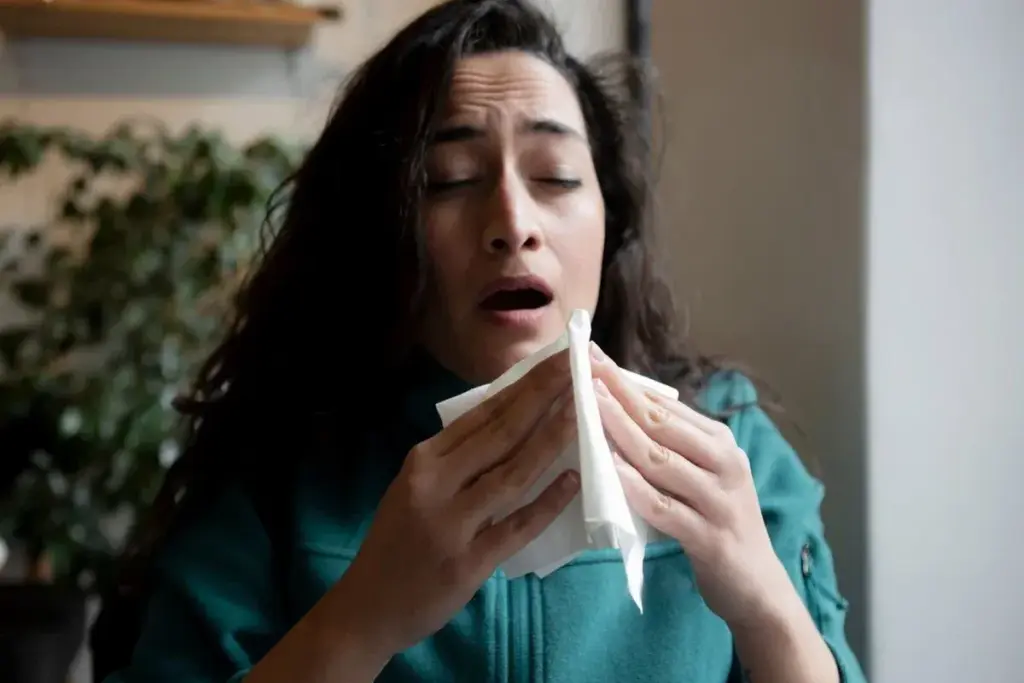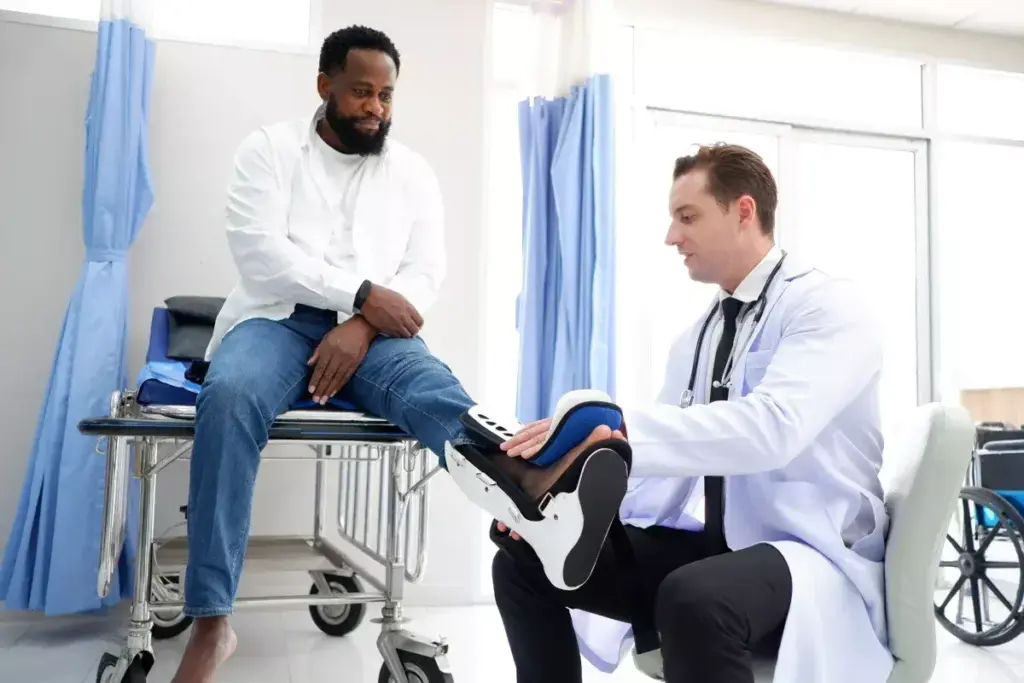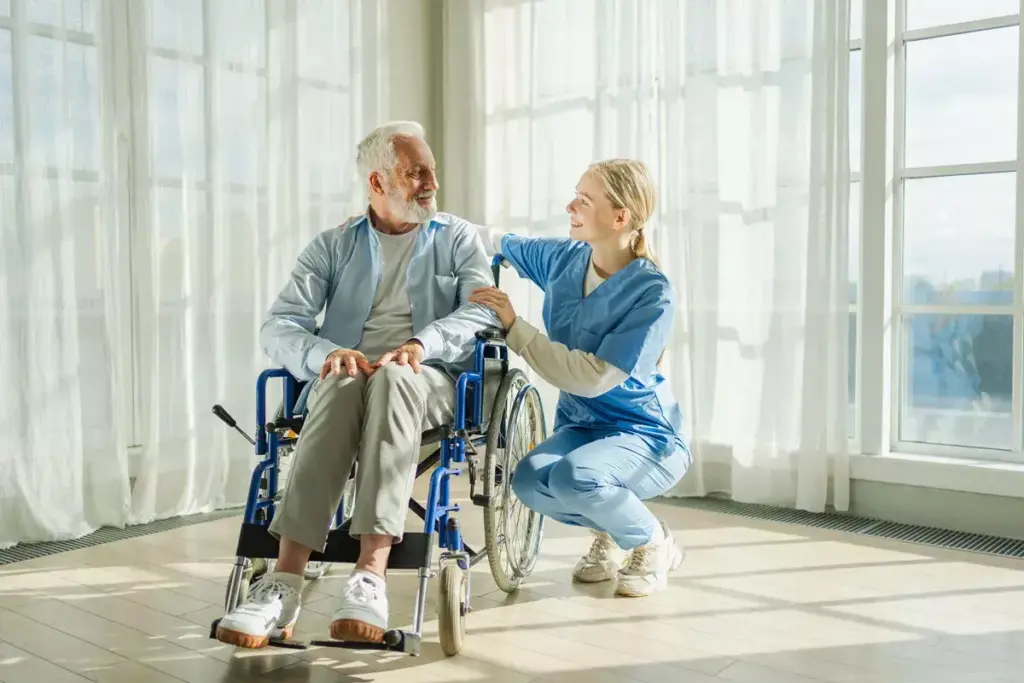Getting a cancer diagnosis can feel overwhelming. Preparing for an oncology appointment is key to getting the best care. With over 1.8 million new cancer cases expected in the United States in 2023, knowing what to expect is vital. Many patients ask, “How do I prepare for an oncology appointment? since being organized can make a big difference in care and comfort.
An oncologist is a doctor who deals with cancer. Knowing what to expect at a cancer doctor near me can reduce anxiety. It helps patients be ready to talk about their treatment options.
Key Takeaways
- Understand the role of an oncologist in cancer care
- Learn how to prepare for your first oncology appointment
- Discover the importance of asking questions during your visit
- Find out what to expect during your initial consultation
- Bring a list of questions and your medical history to your appointment
What is an Oncologist and What Do They Do?

An oncologist is a doctor who focuses on cancer care. They are trained to diagnose, treat, and manage cancer. They provide care to patients from start to finish.
Definition and Specialization of Oncologists
Oncologists are medical experts in oncology. They understand cancer’s causes, symptoms, and treatments. They tailor care to each patient’s needs, considering the cancer type and the patient’s health.
They do medical checks, interpret tests, and plan treatments. They work with other doctors to give patients the best care.
Different Types of Oncologists You Might Meet
There are many types of oncologists. Medical oncologists use treatments like chemotherapy. Radiation oncologists use radiation therapy. Surgical oncologists remove tumors surgically.
Knowing about these oncologists helps patients understand their care. Patients might see different oncologists based on their cancer type and stage.
When You Might Be Referred to an Oncologist
Knowing when you might see an oncologist can help ease worries. You might see an oncologist if you have symptoms or test results that hint at cancer. Or if you need special care for cancer treatment.
Common Reasons for Oncology Referrals
There are many reasons to see an oncologist. This includes abnormal test results, symptoms that could be cancer, or a history of cancer needing follow-up.
- Abnormal Test Results: Blood tests, imaging studies, or biopsies that show possible cancer.
- Symptoms Suggestive of Cancer: Persistent pain, unexplained weight loss, or other signs that could be cancer.
- History of Cancer: If you’ve had cancer before, you might need to see an oncologist for follow-up or treatment of recurrence.
Understanding That a Referral Doesn’t Always Mean Cancer
It’s important to know that seeing an oncologist doesn’t always mean you have cancer. Many times, it’s a precaution or to check if you have cancer.
A diagnosis is not just about confirming or ruling out cancer; it’s about understanding the patient’s overall health condition.
| Step | Description |
| Initial Consultation | Patients visit their primary care physician with symptoms or concerns. |
| Diagnostic Tests | The physician orders tests (e.g., blood tests, imaging studies) to diagnose the condition. |
| Referral to Oncologist | Based on test results, the patient is referred to an oncologist for specialized care. |
What to Expect at Your First Oncologist Appointment
Your first visit to an oncologist is a big step in your cancer care. It’s important to know what to expect. This first meeting helps you understand your condition and what’s next in your treatment.
Typical Duration and Structure of Initial Consultations
Your first oncologist visit can take 30 minutes to several hours. It starts with a look at your medical history and a physical check-up. Then, the oncologist will talk about your diagnosis, treatment options, and answer your questions.
Key components of the initial consultation include:
- Review of medical records and test results
- Discussion of your medical history and current symptoms
- Physical examination
- Overview of possible treatment options
- Chance to ask questions and talk about concerns
Who Might Be Present During Your Appointment
You might have family, caregivers, or other healthcare workers with you. The oncologist’s team could include nurses, physician assistants, or specialists. Having someone with you can offer emotional support and help you remember what’s discussed.
Having more healthcare professionals there can improve your care. For example, a nurse or physician assistant can help explain treatment options and answer questions.
| Role | Responsibilities |
| Oncologist | Diagnoses and treats cancer, discusses treatment options |
| Nurse/Physician Assistant | Assists with patient care, explains treatment details, answers questions |
| Family/Caregivers | Provides emotional support, assists with remembering information |
Essential Medical Information to Gather Before Your Visit
To get the most out of your first oncologist visit, gather and organize your medical history and test results first. Having all your information ready helps your oncologist understand your situation better. This way, they can make better decisions about your care.
Medical Records and Test Results to Bring
When getting ready for your appointment, make sure to collect all important medical records and test results. This includes:
- Previous biopsy reports
- Imaging studies (e.g., X-rays, CT scans, MRI scans)
- Laboratory test results
- Pathology reports
- Operative reports if you’ve had surgery
Having these documents ready helps your oncologist assess your condition more accurately. It’s also wise to make digital copies of these records. This way, you can refer to them later and share with other healthcare providers if needed.
Creating a Detailed Medical History Timeline
A detailed medical history timeline is very helpful for your oncologist. This timeline should include:
- Dates of significant medical events (e.g., diagnoses, treatments, surgeries)
- Details about your symptoms, including when they started and any changes over time
- Information about any previous cancer treatments or diagnoses
- A list of your current and past medications
By creating this timeline, you help your oncologist understand how your condition has progressed. This information is key to making informed decisions about your care. Remember to update this timeline regularly as new information comes in.
Documenting Your Symptoms Effectively
Keeping a record of your symptoms is key in your cancer care journey. It helps your oncologist understand your health better. By tracking your symptoms, you ensure your doctor has all the information they need. This is important for creating a good treatment plan.
How to Track Symptoms and Changes in Your Health
Tracking symptoms is more than just remembering them. It’s about recording when they happen, how bad they are, and what might make them better or worse. Use a symptom journal to write down your symptoms, including the date and time.
For example, if you’re feeling pain, write down where it is, how bad it is, and what helps or hurts. If you’re tired, note when it started, how long it lasts, and what affects it.
“Keeping a symptom journal helps patients identify patterns and correlations that might not be immediately apparent, providing valuable insights for their healthcare team.”
A, Oncologist
Using Symptom Journals or Digital Apps
You can track your symptoms in many ways, from paper journals to digital apps. Digital apps often have extra features like reminders and data analysis. They also let you share your data with your doctor.
- Symptom Tracker Apps: Apps like Symptom Tracker or CareZone let you log symptoms, track meds, and monitor mood and activities.
- Digital Health Platforms: Some platforms offer tools for tracking symptoms, appointments, and messages with your care team.
- Spreadsheets: If you’re tech-savvy, making a spreadsheet to track symptoms can be flexible and customizable.
| Method | Advantages | Disadvantages |
| Paper Journal | Easy to use, no technology needed | Can get lost, hard to analyze data |
| Digital Apps | Reminders, data analysis, data export | Needs a smartphone or tablet, learning curve |
| Spreadsheets | Customizable, easy to analyze data | Requires computer skills, time-consuming |
By documenting your symptoms well, you help your healthcare team make better decisions. Choose a journal or app that works for you. The most important thing is to be consistent and detailed in your tracking.
Creating a List of Current Medications and Supplements
Getting ready for your oncology appointment means making a detailed list of your meds and supplements. This is key for your oncologist to fully understand your health.
Your list should cover all prescription meds, over-the-counter drugs, and supplements you’re using now. This includes vitamins, herbs, and any other supplements that might affect your treatment.
Why Full Medication Disclosure Is Critical
Telling your oncologist about all your meds is very important. Some drugs and supplements can interact with cancer treatments, changing how well they work or causing more side effects. For example, some supplements might make chemotherapy work better, while others could make it less effective.
Studies show that telling your doctor about all your meds can really change how well your cancer treatment works. A study in a well-known medical journal stressed how important it is for patients to give their healthcare providers a complete list of their medications.
How to Format Your Medication List for Maximum Clarity
To make your list clear, organize it in a specific way. Here’s a good format:
| Medication/Supplement Name | Dosage | Frequency |
| Aspirin | 81mg | Once daily |
| Multivitamin | 1 tablet | Once daily |
Organizing your meds like this helps your oncologist understand your treatment plan better. They can then make the best decisions for your cancer care.
It’s not just about listing your meds; it’s about keeping you safe and making your treatment work well. Always talk to your doctor before changing your meds or supplements.
20 Essential Questions to Ask Your Oncologist During Your Appointment
Asking the right questions during your oncology appointment can empower you to take control of your cancer care. It helps you make informed decisions. Being prepared with a list of questions can help you understand your diagnosis, treatment options, and prognosis more clearly.
Diagnosis-Related Questions
Understanding your diagnosis is key for making informed decisions about your care. Here are some diagnosis-related questions to consider:
- What type of cancer do I have, and what stage is it?
- Can you explain my pathology report?
- Are there any additional tests that need to be done to confirm the diagnosis?
- How does my cancer impact my overall health?
- Are there any genetic factors involved in my cancer?
Treatment Option Questions
Once you have a clear understanding of your diagnosis, it’s essential to explore your treatment options. Consider asking the following questions:
- What are my treatment options, and which do you recommend?
- What are the possible side effects of each treatment?
- How will the treatment impact my daily life?
- Are there any clinical trials available that I might be eligible for?
- How will we determine if the treatment is working?
- What are the chances of the cancer recurring with the recommended treatment?
- Are there any alternative or complementary therapies that could be beneficial?
- How will my treatment plan be adjusted if I experience side effects?
“The most important thing for patients is to be informed and to ask questions. It’s their body, and they have the right to understand what’s going on.” –
A renowned oncologist
Prognosis and Quality of Life Questions
Understanding your prognosis and how it may impact your quality of life is vital. Here are some questions to ask:
| Question | Purpose |
| What is my prognosis? | Understanding the likely outcome of your cancer |
| How will my cancer and its treatment affect my quality of life? | Assessing the impact on daily life and well-being |
| Are there any resources available to help manage symptoms and side effects? | Identifying support options for symptom management |
| What kind of follow-up care will I need after treatment? | Planning for post-treatment care |
| How can I maintain my physical and emotional health during and after treatment? | Finding ways to stay healthy and resilient |
By asking these questions, you can gain a better understanding of your cancer diagnosis, treatment options, and prognosis. This enables you to make informed decisions about your care.
The Importance of Bringing a Support Person
Having a support person at your medical appointment can change everything. They offer emotional support and a second set of ears to catch important details. When you get a cancer diagnosis, having a trusted family member or caregiver by your side is key.
The Role of a Support Person During Medical Appointments
A support person can do many things during your oncology visit. They can:
- Provide emotional comfort and reassurance
- Take notes during the consultation, ensuring you don’t miss important details
- Ask questions you might not have thought of
- Help remember instructions or information provided by the oncologist
- Offer a different perspective on the information discussed
Stand Up to Cancer says having support during cancer treatment can greatly improve your experience and results.
How to Brief Your Support Person Before the Appointment
To get the most out of having a support person at your appointment, brief them first. Here’s how:
- Share your medical history and current concerns
- Discuss your goals for the appointment
- Provide a list of questions you’ve prepared
- Explain your preferred communication style
- Encourage them to ask questions or seek clarification on your behalf
By bringing a family member or caregiver to your oncology appointment, you get a better understanding of your diagnosis and treatment options. This can make your care experience better.
Taking Notes and Recording Information During Your Consultation
Patients can greatly benefit from taking notes during oncologist consultations. This helps them understand the information better. It also serves as a useful reference for future visits.
Effective Note-Taking Strategies
To make the most of note-taking during your consultation, try these tips:
- Prepare in Advance: Bring a notebook or a digital device to take notes. Organize your notes by date and the purpose of the visit.
- Focus on Key Information: Pay close attention to the diagnosis, prognosis, and treatment options discussed.
- Review and Clarify: If something is unclear, ask your oncologist to clarify or repeat it. Review your notes at the end of the consultation to ensure they are understandable.
When and How to Ask About Recording the Appointment
Recording your consultation can help you remember more details. But, you must ask your oncologist for permission first.
Why Ask Permission? Recording without consent can violate privacy laws in some places. Always ask your oncologist if it’s okay to record the appointment.
“Recording your consultation can be very helpful, but please ensure you have our permission first. It’s not just about legal compliance; it’s also about making sure you’re comfortable with the process.”
When asking, say, “I want to ensure I don’t miss any important details. Would it be okay if I recorded our conversation today?” This shows you respect their time and want to understand your care plan.
Mental and Emotional Preparation for Meeting Your Oncologist
Getting ready for your oncology appointment is key. It’s normal to feel anxious beforehand. But, there are ways to handle this and get ready emotionally.
Managing Anxiety Before and During the Appointment
It’s important to manage your anxiety before your oncology appointment. Breathing exercises can calm your mind and body. Doing these exercises often helps you stay calm in stressful times.
Also, write down your questions and concerns before the appointment. This helps you remember what to ask and can lower your anxiety.
- Identify your main concerns and questions.
- Prioritize your list to ensure the most important issues are addressed.
- Bring a support person to help remember details and provide emotional support.
Mindfulness and Relaxation Techniques That Help
Mindfulness and relaxation can really help with anxiety. Techniques like progressive muscle relaxation and guided imagery are great.
| Technique | Description | Benefits |
| Progressive Muscle Relaxation | Involves tensing and relaxing different muscle groups. | Reduces physical tension, promotes relaxation. |
| Guided Imagery | Uses visualization to create a peaceful, calming environment. | Decreases anxiety, improves mood. |
| Mindfulness Meditation | Focuses on being present in the moment. | Enhances emotional regulation, reduces stress. |
Adding these techniques to your daily life can help you manage anxiety. This way, you’ll be more ready for your oncology appointment.
What Happens After Your First Oncology Appointment
After your first meeting with an oncologist, you might wonder what comes next. Your cancer care journey is moving forward. Knowing what to expect can make you feel more in control and ready for what’s next.
Common Next Steps in the Cancer Care Journey
Your oncologist will likely create a treatment plan just for you after the first meeting. This plan might include more tests, like imaging or biopsies, to learn more about your cancer.
Treatment options could be surgery, chemotherapy, radiation, or a mix of these. Your oncologist will explain the best treatment for you, including its benefits and risks. This helps you make the best choices.
Follow-up care is key in your cancer journey. Your team will keep an eye on your progress, handle side effects, and change your treatment if needed.
Establishing Communication Channels with Your Care Team
Talking well with your care team is essential for great care. You should know how to reach your oncologist or other team members with questions or worries.
Many cancer centers use patient portals or digital tools for communication. These communication channels help make your care smoother and less stressful.
Don’t be shy about asking how to stay in touch with your team. Whether it’s by phone, email, or a patient portal, knowing how to get in touch is important for your care.
Conclusion: Becoming an Empowered Patient in Your Cancer Care Journey
As you go through your cancer care journey, it’s key to become an empowered patient. This means making informed choices about your treatment and follow-up care. By being proactive, you can make sure your needs are met and your concerns heard.
Stand Up to Cancer says being empowered is critical during cancer treatment. It means being informed, asking questions, and standing up for yourself. This way, you can control your cancer care and get the most from your oncologist visits.
Being a good self-advocate means being ready for your appointments, tracking your symptoms, and keeping a detailed medical history. This helps you work with your care team to create a treatment plan that fits you perfectly.
By becoming an empowered patient, you can face your cancer care journey with confidence. You’ll be able to make informed decisions about your health. This helps you take charge of your well-being and aim for the best outcomes.
FAQ
What is an oncologist?
An oncologist is a doctor who deals with cancer. They help plan treatments for patients. They have special training in cancer care.
What are the different types of oncologists?
Oncologists come in different types. Medical oncologists use drugs to treat cancer. Radiation oncologists use radiation. Surgical oncologists remove tumors through surgery.
Why might I be referred to an oncologist?
You might see an oncologist if you have cancer symptoms or test results. They also help those at risk of cancer. A referral doesn’t mean you have cancer.
What can I expect during my first oncologist appointment?
Your first visit will cover your medical history and a physical check. You’ll discuss your diagnosis and treatment options. The meeting can last from 30 minutes to several hours.
Who might be present during my oncologist appointment?
You’ll meet with your oncologist and other healthcare team members. It’s a good idea to bring a friend or family member. They can offer support and take notes.
What information should I bring to my oncologist appointment?
Bring all your medical records and test results. Also, list your current medications and supplements. Don’t forget to write down any questions or concerns.
How can I effectively document my symptoms?
Use a symptom journal or app to track your health. This helps you remember important details for your oncologist.
Why is full medication disclosure critical for cancer treatment?
Telling your oncologist about all medications is key. Some can affect treatment or cause side effects. Your oncologist needs this info for a safe plan.
What are some essential questions to ask my oncologist?
Ask about your diagnosis, treatment options, and what to expect. Questions like “What is my diagnosis?” and “What are my treatment options?” are important.
Can I record my oncologist appointment?
It’s best to ask your oncologist before recording. Some may have rules about recording appointments.
How can I manage anxiety before and during my oncologist appointment?
Use mindfulness and relaxation techniques like deep breathing or meditation. Having a support person can also help reduce anxiety.
What happens after my first oncology appointment?
After your first visit, you’ll get a treatment plan or more tests. Your oncologist will also set up communication with your care team.










